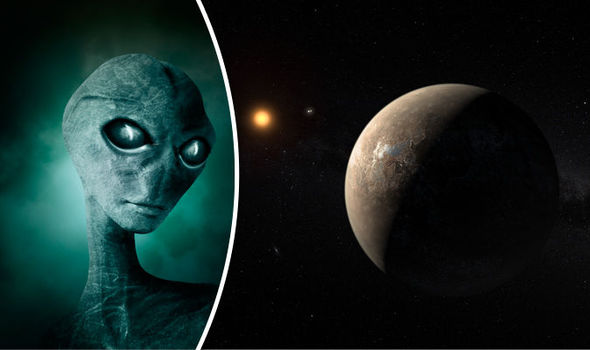Gravity may be preventing aliens from leaving their planets, A New Study Reveals.
It’s an old conundrum. Given the high probability of life being out there in an incredibly massive universe, why have we not received any contact?
Explanations range from the unlikely (there are no aliens at all) to the terrifying (gamma-ray bursts that wipe out civilizations are too frequent to allow complex life to develop and make contact with other worlds).
A new theory has thrown up another possibility to explain why aliens on some planets may not have explored space, let alone their own solar systems: They may be trapped on their home planet, unable to ever escape its atmosphere.
In order to escape our own planet, we need to be moving at around 11 kilometers per second (almost 7 miles per second), or 40,270 kilometers per hour (25,000 miles per hour). That’s our escape velocity. Therefore, we require an enormous amount of fuel to get anything to leave the planet, let alone a sizeable payload.
Just look at any rocket launch to see how much fuel is involved, particularly the fuel required to send Space X’s insane rockets into space.
This new theory, available on Arxiv, suggests that aliens faced with stronger gravity than us may not be able to leave their planet at all, due to the tremendous amount of thrust they’d have to generate in order to do so. It may just be outside the realms of possibility.
The study, by Michael Hippke, a researcher affiliated with the Sonneberg Observatory, suggests that rocket launches become more and more expensive in terms of fuel as gravity increases. By the time you look at super-Earth planets 10 times our mass, the study suggests that chemical rockets would no longer be capable of taking aliens into space, as they’d require a quantity of rocket fuel equivalent to the mass of the largest pyramid in Egypt.
“More massive rocky worlds,” Hippke explained in his paper, “would require other means to leave the planet, such as nuclear propulsion”.
This wouldn’t just cause problems for aliens in terms of leaving their home planet and exploring but could mean that they are unable to advance technologically as we have.
“On more-massive planets, spaceflight would be exponentially more expensive,” Hippke told Space.com. “Such civilizations would not have satellite TV, a moon mission or a Hubble Space Telescope.”
Without these capabilities, and without global satellite communication or space telescopes to help detect other planets, it might not be possible for aliens to reach the stage at which they can feasibly make contact with other worlds.
While this new theory doesn’t rule out aliens making contact, they could be from smaller planets more like our own, for example, it does suggest that it would be incredibly difficult for aliens living on larger worlds to make contact.
They could be trapped out there, alone on their planet with no way to let anyone know.















